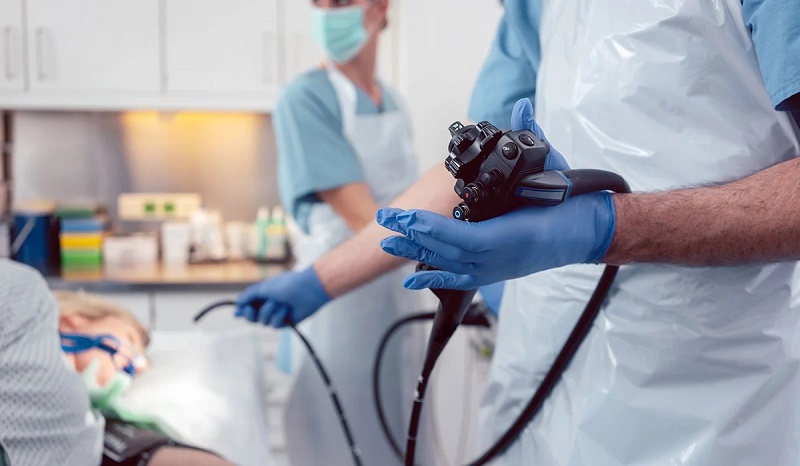
Colon polypectomy
Colon polypectomy is sometimes performed at the same time as colonoscopy and sometimes in a separate session. During a colonoscopy, the colonoscope is inserted into the patient's rectum so that the doctor can see all parts of the large intestine.
Colonoscopy is performed to screen people over 45 years of age for the presence of polyps that can indicate the risk of cancer. Of course, colonoscopy may be recommended by a doctor at any age for another specific reason. If the doctor finds a polyp during the colonoscopy, he can perform a polypectomy at the same time.
There are different methods through which a polypectomy can be performed, depending on the size of the polyp in the large intestine, one of them is used.
For small polyps (diameter less than 5 mm), biopsy forceps can be used to remove the polyp. Larger polyps can be trapped and removed using a metal ring. In polypectomy, the doctor places a ring at the base of the polyp and uses heat to cut the polyp, then the tissue or stem of the polyp is cut.
Preparation for polypectomy:
1. The colonoscopy diet must be fully observed and the patient's bowels must be completely emptied.
2. The patient should not carry any metal items such as gold and rhinestones, pressings, metal headbands, clothespins and underwear, etc.
3. The patient should inform the doctor if he has a heart battery or any type of metal in his body.
4. Before the polypectomy operation, the patient must inform the doctor about the use of any of the drugs that increase the risk of bleeding (for example: Aspirin, Plavix, and anticoagulants) and stop using the drugs according to the doctor's opinion.
5. Before polypectomy, it is necessary to perform coagulation tests to check the possibility of bleeding.
Polypectomy postoperative care (recovery period)
Some bleeding and pain may occur following a polypectomy. The patient should consult a doctor in case of excessive bleeding or severe and unbearable pain.
The patient should not drive for 24 hours after surgery.
Postoperative recovery is generally quick, and minor side effects such as swelling and pain usually resolve within 24 hours of the procedure.
The complete recovery time may vary between one to several days depending on the type of operation.
Like all surgeries, this surgery also has some complications, these include:
• Bleeding: Sometimes a wound does not heal properly and it bleeds.
• Infection: Any wound can become infected. When patients ignore the doctor's advice or are not in good health, there is a possibility of infection.
• Incomplete removal: sometimes, depending on the size and shape of the polyp, it is not possible to completely remove the polyp in the first operation, and this requires a second polypectomy.
• Organ perforation: In very rare cases, the operated organ may be perforated.
Dear patient:
The announced date and time is for you, so in order to avoid violating the rights of other patients, please be present at the announced time. The announced time for your attendance may vary according to the conditions, so expect a waiting time of about 1 and a half hours.
Address:
Novin Farabi Gastroenterology Clinic, 2nd Floor, Farabi Doctors Building, between 2nd and 4th North Kosar St., Vakil Abad Blvd., Mashhad, Iran
Phone: +985138704066 +985138704067
Mobile number for emergencies only: +989020069902